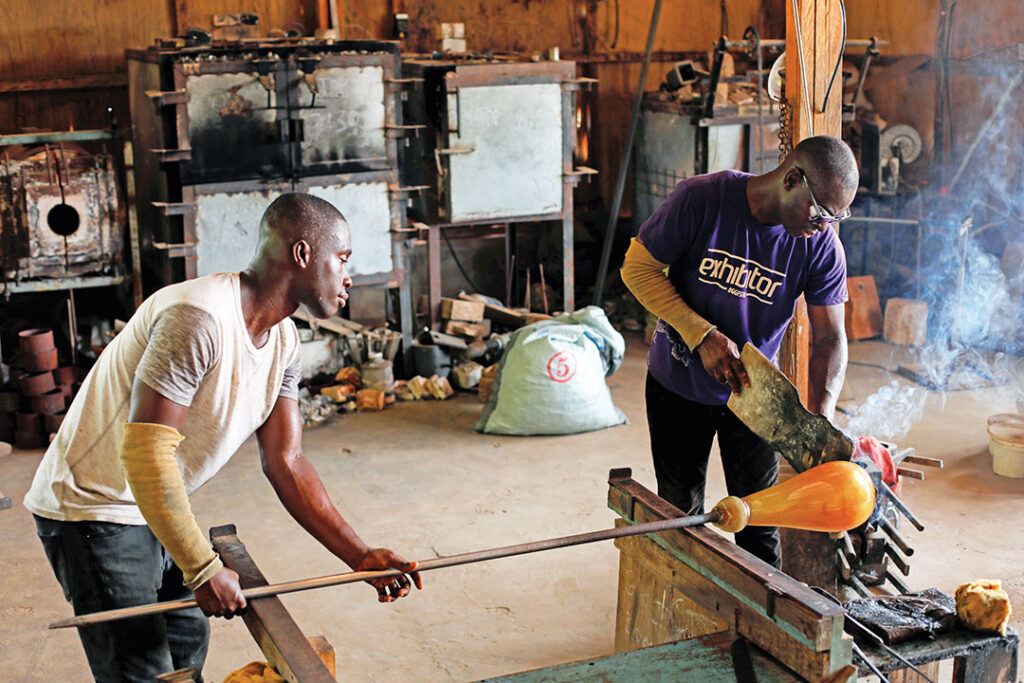REUTERS
Michael Tetteh, Ghana’s only professional glass blower, clenched his teeth as he gripped a red-hot ball of molten glass, his burned and blistered hands bare against the steaming stack of wet newspapers he used to protect them.
The 44-year-old toiled in the heat of scrap-metal kilns burning at nearly 1,500 degrees Celsius, packed with melted windowpanes, TV screens and soda bottles he soon would transform into elaborate vases swirling with psychedelic color. Some become red vases with streaks of black, others green pitchers and some clear, everyday bottles.
Tetteh’s strict use of recycled materials, which he collects from scrap yards and landfills in the capital, Accra, is part of his mission to reduce Ghana’s glass waste and imports. He envisions a Ghana free of foreign glass, having channeled its glass bead-making tradition into a modern, multifaceted industry.
Ghana imports about
$300 million in glass and ceramic products each year. Although some private companies recycle their glass, Tetteh said the majority of Ghana’s glass waste ends up in landfills or scattered throughout the nation’s streets, posing a safety hazard.
Tetteh discovered glass blowing in 2012 after spending several months in France and the Netherlands learning the craft with other Ghanaian bead makers.
He was alone in his desire to continue upon returning home and set a goal to establish a proper hot shop in Odumase-Krobo. Undeterred by his lack of money, he built furnaces from scrap metal and clay using online tutorials. He fine-tuned his abilities by watching YouTube videos of famous glass artists such as Dale Chihuly from the United States.
He has since hired several young assistants from Odumase-Krobo, who he is training and hopes one day will run their own workshops. Their work can be found in boutiques in Ghana and Côte d’Ivoire, and has appeared in European and American art galleries.

